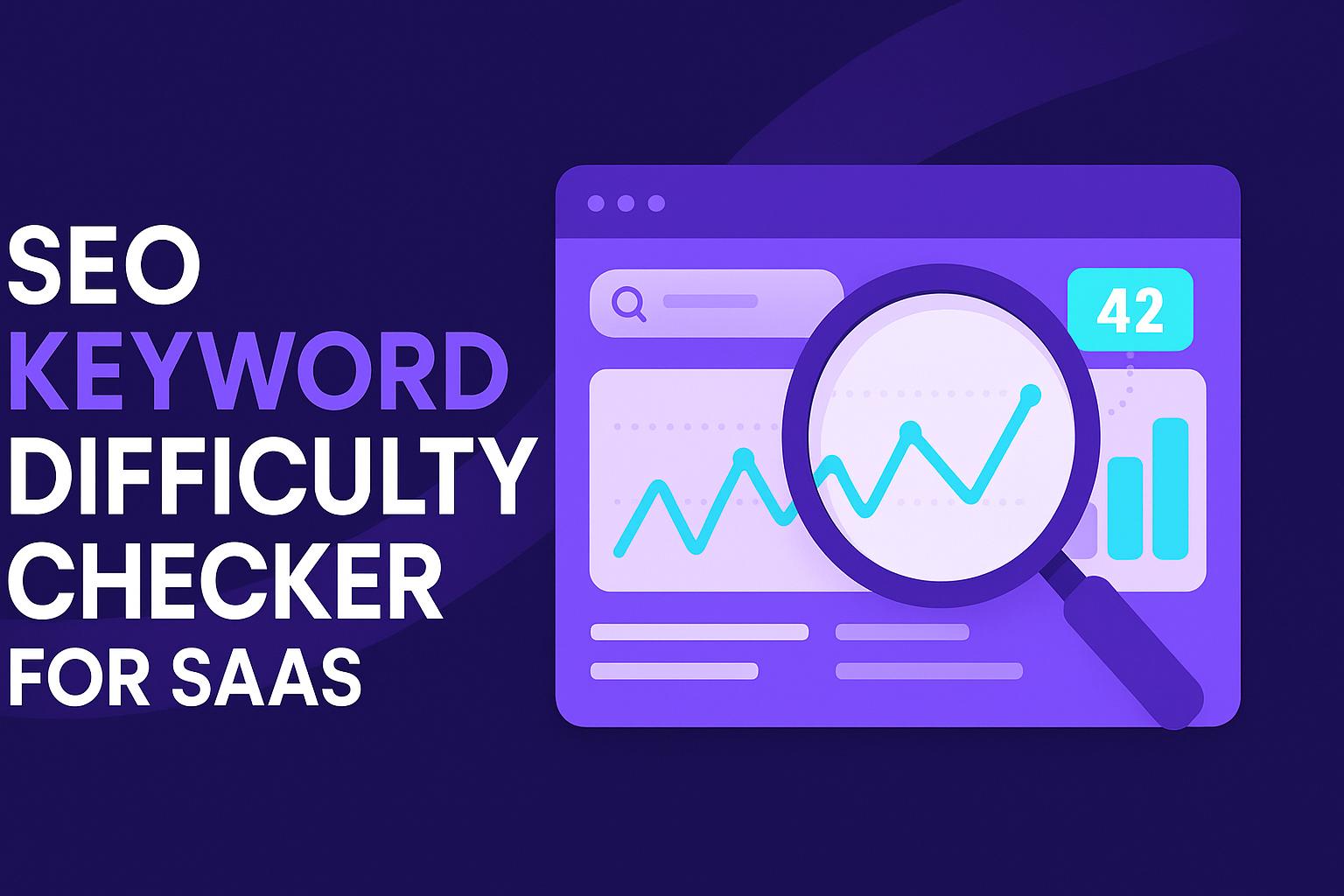SEO Keyword Difficulty Checker for SaaS



Unlock Your SaaS Growth with Smart Keyword Choices
For SaaS businesses, cracking the code to organic traffic often comes down to one thing: targeting the right keywords. But how do you know if a term is worth your time? That’s where a tool to evaluate keyword ranking challenges can be a lifesaver. It’s not just about picking popular terms; it’s about finding ones you can realistically compete for, especially when you’re up against established players.
Why Keyword Analysis Matters
SaaS marketing thrives on precision. You’ve got limited resources, so chasing overly competitive phrases can drain your budget with little payoff. By assessing how tough a keyword is to rank for, you can focus on opportunities that align with your domain strength and audience needs. Imagine zeroing in on terms that drive sign-ups or demos without months of grinding for a top spot. Tools that break down this competition barrier help you strategize smarter.
Start Small, Win Big
If you’re early in your SaaS journey, aim for niche phrases with lower difficulty. As your authority grows, so can your ambitions. A strategic approach to SEO, guided by reliable analysis, sets the foundation for sustainable growth. Take the guesswork out of your next campaign and make data-driven decisions that stick.
FAQs
What does the keyword difficulty score mean for my SaaS?
The score, ranging from 1 to 100, reflects how hard it might be to rank for a keyword. A score under 30 usually means it’s pretty achievable with some effort, even if your domain authority isn’t sky-high. Between 30 and 60, you’re looking at moderate competition—doable with a solid strategy. Above 60, it’s a steep climb, often dominated by big players. For SaaS businesses, I’d focus on lower to mid-range scores to build traction without burning through resources.
How does domain authority affect my keyword ranking?
Domain authority, or DA, is a measure of your website’s credibility in the eyes of search engines, scored from 1 to 100. A higher DA often means you’ve got a better shot at ranking for tougher keywords because Google sees you as more trustworthy. If your DA is low, say under 30, it’s smarter to target less competitive terms while you build up backlinks and content. Our tool factors this into the difficulty score to give you a realistic picture.
Can I trust this tool for my SaaS marketing plan?
Absolutely, though I’ll be upfront—it’s a simulation based on typical SEO factors like search volume and competition, not real-time data. Think of it as a starting point to narrow down keyword ideas for your SaaS. It’s best paired with other research, like checking search trends or spying on competitors. That said, our algorithm is designed to mimic real-world challenges, so the insights are practical and grounded for most SaaS niches.

sustainable revenue channels.







